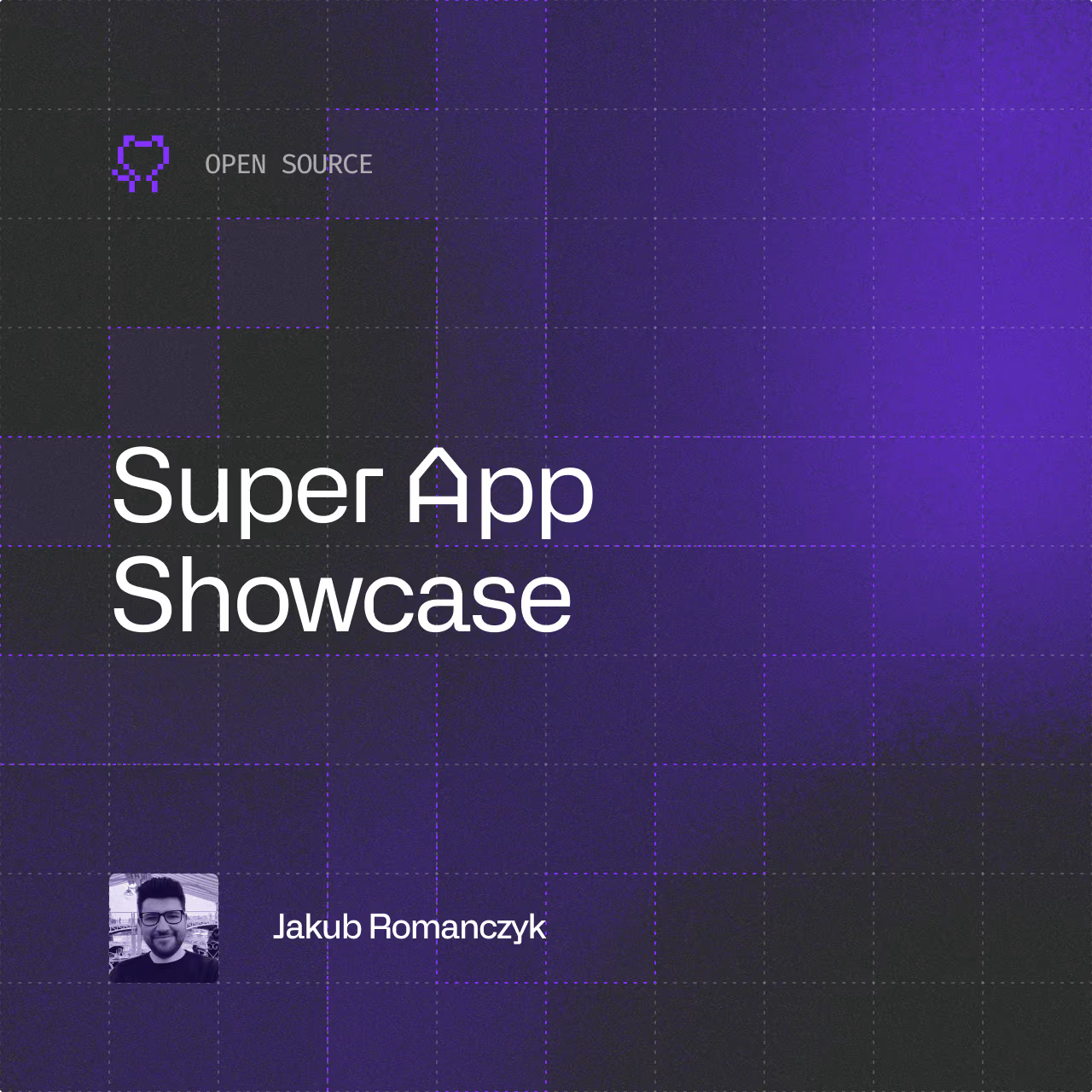
Build a mobile platform that scales with every new feature
.svg)

We help teams create super apps with modular architecture where they can ship updates independently and plug new services at any point in time.

Why teams choose React Native to build super apps
React Native gives teams a flexible foundation for modular architecture that traditional native stacks weren’t built for.
Dynamic updates without redeploy
Push fixes, features, or new mini apps independently, without app store reviews or full releases.
Dynamic updates without redeploy
Push fixes, features, or new mini apps independently, without app store reviews or full releases.
Architecture made for scale
Use Module Federation to split your app into secure, sandboxed mini apps, each owned, built, and deployed by separate teams.
Architecture made for scale
Use Module Federation to split your app into secure, sandboxed mini apps, each owned, built, and deployed by separate teams.
Build for third-party contributors
Expose APIs, shared libraries, and contracts, enabling external teams to ship updates without conflicts.
Build for third-party contributors
Expose APIs, shared libraries, and contracts, enabling external teams to ship updates without conflicts.
Southern Glazers cut release cycles and scaled app development across teams
By restructuring how apps were built, tested, and released, teams reduced deployment time from weeks to seconds and were able to ship features across mobile and web platforms in parallel.
- Achieved sub-second mobile and web releases using modular architecture
- Reduced CI build times, unlocking thousands of developer hours
- Improved coordination across engineering, QA, and compliance teams

Production-ready super app platform
A composable foundation where features, services, and teams move independently without sacrificing performance, consistency, or control.
Modular host application
A stable shell that handles routing, layout, navigation, and runtime loading of features from mini apps.
Shared SDK
A maintained library of components, APIs, and utilities, used across all mini apps to ensure consistency and integration.
Secure sandbox
An isolated environment for each mini app, ensuring safety across independently developed modules.
CI/CD and release infrastructure
Pipelines for OTA updates, feature rollouts, versioning, and staging-supporting fast and safe delivery.
Shared codebase
One codebase that runs across desktop, mobile, and web-built on React Native or React with Electron.
Owned by your team
Clear structure, documentation, and naming conventionsso your team can take over with confidence.

See microfrontends in action with our open-source Super App Showcase
Learn how to bring microfrontend architecture to React Native with our open-source Super App Showcase. It shows how to use Re.Pack and Module Federation to load mini apps at runtime, enable independent deployments, and give teams full ownership without the constraints of a monorepo. It’s the same foundation we use to build scalable super apps in production.
Build a modular, multi-service app that scales across teams and platforms
Build a cross-platform super app
We help you define architecture, structure your shell and modules, and build the foundation for a multi-service app.
Migrate to modular architecture
Transition from monolith to super app incrementally, without rewriting everything at once.
Support third-party integrations
We help you expose APIs and contracts to allow safe, permissioned external contributions to your platform.
Develop features in parallel and release independently
We set up shared tooling, infrastructure, and code practices to support independent teams shipping in parallel.
Build and validate your super app architecture in one sprint

Why leading companies work with Callstack
Meta Official Partners
We are official Meta partner for React Native, co-organizers of React Conf and hosts of React Universe Conf.
Working at scale
We know how to make React Native work at enterprise scale, both technically and organizationally.
React Native Core Contributors
We don’t just use React Native to build cross-platform apps, we help shape it for millions of developers.
Team at scale
We’re a team of 200+ engineers ready to start fast and scale with your needs.
Enterprise-friendly
We hold ISO certifications and follow strict security standards to make onboarding smooth and compliant.
Wide range of services
As a partner for your full application lifecycle, we offer a full range of services around React and React Native.

FAQs
Building a super app raises new architectural and operational questions around modularization, deployment, team autonomy, and runtime performance. Here are some of the most common ones we help teams navigate.
Yes. Super apps are built to evolve, start small and onboard new features or services independently as your product grows.
We register each mini app through a discovery server, allowing the host to dynamically load the latest approved version. Teams can deploy independently without touching the host or other modules.
That’s exactly what super apps are designed for. Each team can own their own module, repository, and release cycle, without breaking the host app.
Absolutely. Our setup supports both monorepo and multi-repo models, giving you flexibility in how teams structure and collaborate on code.
Yes. Mini apps can be built to run independently for local development or testing, while still integrating seamlessly into the host.
We use content hashing and shared contracts to manage compatibility at runtime. This ensures the host app only loads compatible mini apps.
No, microfrontends are loaded on demand, so users only download what they need, keeping your app lightweight and responsive.
Need a partner to build or scale your super app?
We help teams design and implement modular, production-ready super app platforms, enabling independent teams, faster releases, and long-term scalability with React Native.
We’ve helped dozens of teams go cross-platform without rewriting everything. Let's see how we can help you.
